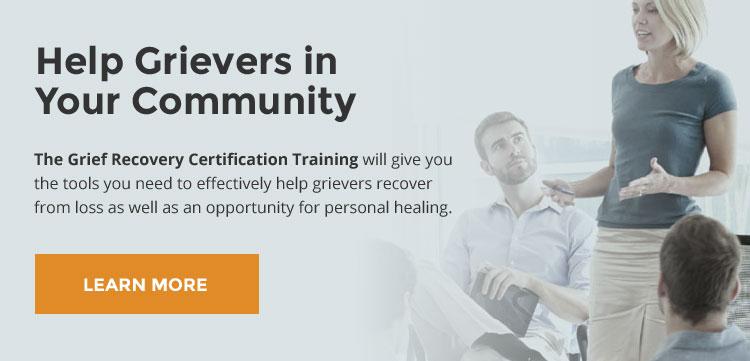
Life is filled with unavoidable situations, and grief is no different.
Whether you’re going through a breakup, a death, a miscarriage, the end of a friendship, or any loss, grieving is a universal, natural, and personal experience.
So why do we have such a hard time supporting one another during grief? Why is grief so uncomfortable?
Let’s use Grief Awareness Day to learn more about dealing with grief and how to be there for our loved ones who are going through tough times.
The History of Grief Awareness Day
Grief Awareness Day is August 30. It was established in 2014 by Angie Cartwright, a Grief Recovery Specialist trained through the Grief Recovery Institute. Having endured significant personal losses, including the deaths of her sister during childhood and later her husband and mother, Angie understood the deep pain and isolation that accompany grief. She selected August 30 for Grief Awareness Day in tribute to her mother's birthday.
Angie's mission in creating this day was to educate people about grief, encourage openness about heartache, and ensure those grieving understand they are not alone. She even petitioned to recognize Grief Awareness Day as a national holiday.
Misconceptions About Grief
Grief Awareness Day is an ideal opportunity to address common misunderstandings about grief. A well-known example is the "stages of grief" model. In 1969, Elizabeth Kubler-Ross introduced this concept in her book On Death and Dying, which described the emotions terminally ill patients might experience: Denial, Anger, Bargaining, Depression, and Acceptance. However, these stages have been incorrectly applied to all grieving processes. In reality, grief is highly individual—some people cry, some do not, some feel anger, and others do not. Attempting to categorize grief into fixed stages can be damaging.
While there are no universal stages of grief, specific characteristics are commonly observed among grievers, such as difficulty concentrating, sleeping problems, and changes in eating habits.
Another widespread misconception is the notion that "time heals all wounds." After more than 40 years of supporting grievers, it has been found that time alone does not heal a broken heart; it is the actions taken during that time that facilitate recovery.
Similarly, the advice to "keep busy" can be misleading. Staying busy may distract individuals from their feelings but does not help them process their grief and can prolong their suffering.
Moving Forward
Raising awareness is an essential first step.
The next logical step is creating a recovery plan. For over 40 years, the Grief Recovery Method has been instrumental in helping countless individuals heal from grief and training thousands of Certified Grief Recovery Specialists to support others through a proven program.
Let's come together to spread the message that grief is a normal, natural part of life and that the Grief Recovery Method can mend broken hearts for those willing to put in the effort.
We must ensure grievers receive the support they need.
Here are some actionable steps you can take today:
- Share this blog
- Check on someone you know who is grieving
- Gift a copy of The Grief Recovery Handbook
- Download our free Grief eBook
- Become a Grief Recovery Specialist and help others heal from loss



























Add new comment